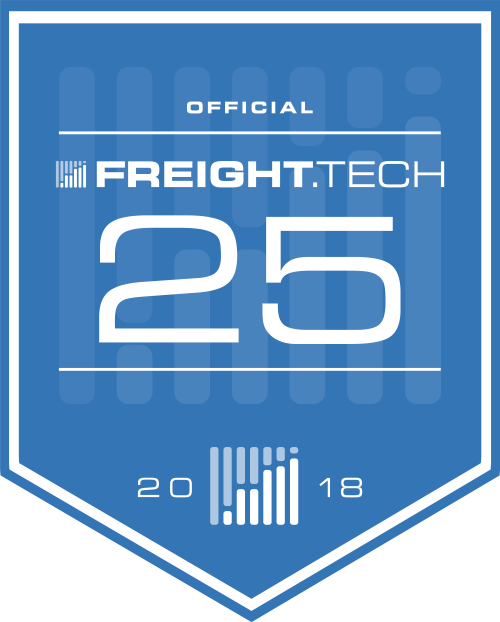St. Paul, Minnesota, recently voted to ban truck parking on city streets — marking yet another city that needs drivers to deliver freight but doesn’t want them parking there.
It’s a frustrating and ongoing problem. There are a lot of stereotypes about truckers and truck parking, and many times there are no advocates for drivers at city meetings. However, as an industry, we can take action — and we should, before the government does it for us.
The Problem
In early 2023, NPR reported that there were 11 trucks for every truck parking space in the U.S. As we all know, laws require drivers to stop after 14 hours of duty, and ELD systems help ensure that’s enforced.
How that plays out is generally that drivers stop making progress on their routes up to two hours early in order to search for a parking spot before the 14 hours expire. Many truck stops are full by 4 pm, well before drivers want to stop. But they don’t have a choice if they’re going to find legal, safe parking.
Most Americans don’t realize there’s a truck parking problem, according to a recent survey by CloudTrucks. Once they understand the issue, they support increasing public awareness of the shortage. However, the vast majority still want parking facilities funded and developed by the federal government rather than locally and located at least three miles from their homes.
Is This a Government Issue?
In the CloudTrucks survey, the public identified truck parking as an issue the federal government should handle. Are they right?
The federal government might think so. A bill called the Truck Parking Safety Improvement Act, which increases funding for developing truck parking, recently advanced in the House, although it’s too early to know whether it will pass the full House and then the Senate.
The problem with the federal government overseeing these projects is simple — they aren’t drivers and have never been drivers. That means bureaucrats with no experience in what drivers face every day will be making crucial decisions about truck parking availability and structure.
We don’t believe this should be a federal government issue, but it will certainly become one if the industry doesn’t take action itself.
What We Can Do as an Industry to Help Solve Truck Parking
If we’re going to stave off even more bureaucratic involvement in our industry, we need to solve some of these key problems ourselves. There are several things we can do.
Respect Existing Parking Areas
One of the reasons parking is dwindling is that a few drivers feel the need to create significant messes in areas they are allowed to park.
For example, years ago, truckers were able to park in almost any Walmart parking lot. Not anymore. Walmart managers and employees saw bags and bottles of human waste left behind where truckers were parking, along with empty oil jugs and other trash. Also, drivers were driving their trucks over curbs and destroying the planters and landscaping the store had put out. As a result, the Walmarts banned truck parking — while campers are still welcome.
There’s no reason not to respect a parking area — and drivers truly can’t expect more parking with that behavior. This is a part of the problem only drivers themselves can solve.
Facilities Can Provide or Develop Parking
Warehouses are often on large tracts of land, and they can help the parking issue by allowing parking at the facility or developing parking on the land they own adjacent to their facility.
Not only would this increase the efficiency of drop-offs and pick-ups, but it would also provide an important service and even a revenue stream if the facility wanted to charge a small fee per spot.
(Before the drivers come for me, I want to point out that we can’t expect new parking without any benefit for the provider. If there’s no store or truck stop, it’s not unreasonable to charge for parking.)
Drivers Can Advocate For Parking Within Their Communities
Another important solution is for individual drivers to advocate for truck parking within their communities. There should be a voice for drivers at city council meetings addressing this issue, and there’s usually not.
When there is, the outcome can be very positive. On March 16, 2023, advocate and operator Desiree Wood spoke to the Miami-Dade Commissioners meeting, providing both facts and her personal perspective. As a result, the commissioners approved a request for truck parking zoning by a vote of 25 to 1.
Drivers who share truthfully and plainly about their experiences and the need for parking can dramatically change the local landscape, community by community.
Technology Solutions Can Make it Easier to Find Parking
Finally, technology solutions within the industry can make it easier for drivers to find and even reserve parking spots along their routes. This can help us keep trucks moving forward rather than losing two hours every day to circling for parking.
Dock411 is proud to include information on nearby parking areas in our app and dataset. Not only can drivers find out how to get to the facility the right way, find the dock location quickly, and read reviews from other drivers, but they can also find parking information near their pickup or drop-off location.
As this data becomes more widely available and is shared through different tech solutions, finding parking will be easier for drivers and will involve less, well, DRIVING. Instead, drivers can get to a parking location quickly and easily.
Keeping the Government Out of Parking
The truth is that none of us want bureaucrats who have never spent a day of their lives behind a wheel making key decisions about parking projects. Instead, we should be working within communities, developing parking near facilities, and using technology to make parking easier to find.
Interested in learning more about Dock411’s technology solution and how it can help drivers, and how your technology can use our API? Contact us today and we’ll chat!
